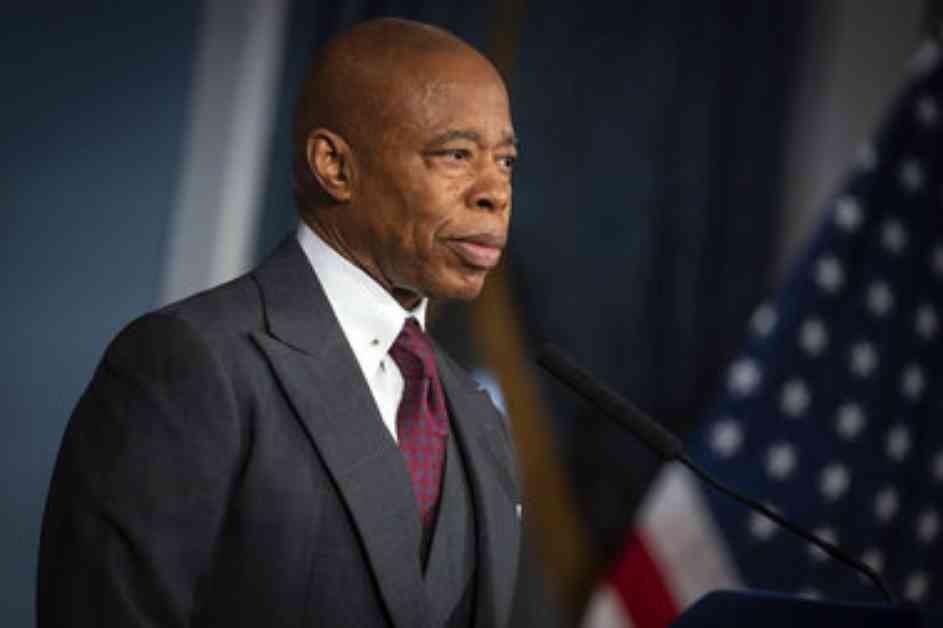Mayor Adams Uproar Deepens Concerns About Trump’s Justice Department
The recent actions of President Donald Trump’s U.S. Department of Justice (DOJ) have sparked controversy, leaving many questioning the integrity of the American justice system. The current focus is on the Democratic mayor of New York City, Eric Adams, who has found himself at the center of a legal storm.
Mayor Adams is facing five counts of violating federal anti-corruption laws, a charge he vehemently denies. However, a surprising turn of events occurred last week when acting Deputy Attorney General Emil Bove instructed DOJ prosecutors in the Southern District of New York to drop the case against Mayor Adams.
The decision to dismiss the indictment against Mayor Adams has raised concerns about the weaponization of the justice system. This move has triggered a cascade of political, legal, and ethical implications that experts believe surpass even the infamous “Saturday Night Massacre” of Watergate.
Resignations and Controversy
The fallout from the DOJ’s decision to drop the case against Mayor Adams has been significant. Seven career DOJ prosecutors have resigned in protest of the order. They allege that there was a quid pro quo between Mayor Adams and the Trump administration, suggesting that the case was dropped in exchange for the mayor’s cooperation with Trump’s deportation efforts.
Both Mayor Adams and Mr. Bove have denied any quid pro quo arrangement. Nevertheless, critics argue that the decision to dismiss the case without prejudice leaves the door open for future charges, potentially keeping Mayor Adams under the influence of the Trump administration.
This wave of resignations within the DOJ is unprecedented since Watergate, underscoring the depth of discontent within the department. The actions of Trump-appointed officials, intended to curb the perceived political weaponization of the justice system, have had the opposite effect, leading to widespread criticism and skepticism.
Challenges to DOJ Leadership
The heart of the controversy surrounding Mayor Adams’s case lies in a fundamental disagreement over the role of a federal prosecutor. Acting head of the Southern District of New York, Danielle Sassoon, emphasized the importance of upholding the duty to prosecute a validly returned indictment, regardless of any political motivations.
However, Mr. Bove contended that following direct orders from DOJ’s political appointees supersedes individual legal and ethical concerns. This clash of principles highlights the delicate balance between political oversight and judicial independence within the DOJ.
Experts emphasize that while changes in DOJ policy are within the purview of new leadership, interfering in specific cases based on partisan interests is problematic. The accusations of partisan influence in the decision to dismiss Mayor Adams’s case raise broader concerns about the impartiality and fairness of the justice system.
As the case unfolds in a Manhattan courtroom, U.S. District Judge Dale Ho faces the challenging task of determining the public interest in either continuing or ending the prosecution. The clash between DOJ leadership and resigned prosecutors underscores the complexity of balancing legal obligations with political pressures.
Amid accusations of weaponized justice and conflicting narratives, public confidence in the justice system hangs in the balance. The outcome of this case has far-reaching implications for the integrity and credibility of the American legal system. The need for transparency, accountability, and adherence to the rule of law has never been more critical.

